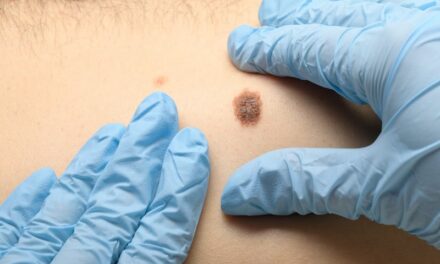A new type of blood test for breast cancer could help to avoid thousands of unnecessary surgeries and otherwise precisely monitor disease progression, according to a study led by the Translational Genomics Research Institute (TGen) and the Mayo Clinic in Arizona.1
The study suggests that the targeted digital sequencing (TARDIS) test is at least 100 times more sensitive than other blood-based cancer monitoring tests. TARDIS is a liquid biopsy that specifically identifies and quantifies small fragments of cancer DNA circulating in the patient’s bloodstream, known as circulating tumor DNA (ctDNA). According to the study, TARDIS detected ctDNA in patient blood in concentrations as low as 2 parts per 100,000.
“By precisely measuring ctDNA, this test can detect the presence of residual cancer, and inform physicians if cancer has been successfully eradicated by treatment,” says Muhammed Murtaza, MBBS, PhD, assistant professor and codirector of TGen’s center for noninvasive diagnostics. Murtaza also holds a joint appointment on the research faculty at Mayo Clinic Arizona, and is one of the study’s senior authors.
According to Murtaza, TARDIS is precise enough to tell whether early-stage breast cancer patients have responded well to preoperative drug therapy. It is more sensitive than the current method of using imaging technologies to determine a patient’s response to drug therapy.
“This has enormous implications for women with breast cancer,” says Barbara A. Pockaj, MD, a surgical oncologist who specializes in breast and melanoma cancer patients at Mayo Clinic in Arizona and the study’s other senior author. “This test could help plan the timing and extent of surgical resection and radiation therapy after patients have received preoperative therapy.”
Unlike traditional biopsies, which only produce results from one place at one time, liquid biopsies use a simple blood draw, and so could safely be performed repeatedly, as often as needed, to detect a patient’s disease status.
The study was performed in collaboration with Carlos Caldas, MD, professor of cancer medicine at the University of Cambridge and director of the breast cancer program at the Cancer Research UK Cambridge Cancer Center.
“TARDIS is a game-changer for response monitoring and residual disease detection in early breast cancer treated with curative intent,” says Caldas. “The sensitivity and specificity of patient-specific TARDIS panels will allow us to tell very early, probably after one cycle, whether neo-adjuvant therapy is working, and will also enable detecting micrometastatic disease and risk-adapted treatment after completing neo-adjuvant therapy.” Caldas is one of the study’s contributing authors.
Following further clinical testing and trials, TARDIS could someday be routinely used for monitoring patients during cancer treatment, and discovering when patients are essentially cured and cancer free.
“The results of these tests could be used to individualize cancer therapy, avoiding overtreatment in some cases and undertreatment in others,” Murtaza says. “The central premise of our research is whether we can develop a blood test that can tell patients who have been completely cured apart from patients who have residual disease. We wondered whether we can see clearance of ctDNA from blood in patients who respond well to presurgical treatment.”
Current tests and imaging lack the sensitivity needed to make this determination.
“Fragments of ctDNA shed into blood by tumors carry the same cancer-specific mutations as the tumor cells, giving us a way to measure the tumor,” says Bradon McDonald, a computational scientist in Murtaza’s lab, and the study’s first author.
“The problem is that ctDNA levels can be so low in nonmetastatic cancer patients, there are often just not enough fragments of ctDNA in a single blood sample to reliably detect any one mutation. This is especially true in the residual disease setting, when there is no obvious tumor left during or after treatment,” McDonald says. “So instead of focusing on a single mutation from every patient, we decided to integrate the results of dozens of mutations from each patient.”
The study results suggest that personalized ctDNA analysis, using TARDIS, is a promising approach to identifying patients with a curative response following presurgical drug therapy.
“Together with imaging and tissue-based predictive biomarkers, ctDNA is rapidly becoming a useful diagnostic test to determine individualized decisions about additional treatment,” says Murtaza.
TGen is now focused on evaluating the best partners to work with to automate and scale TARDIS, so it can be made available broadly to benefit patients in need. TGen is a Phoenix-based nonprofit organization dedicated to conducting groundbreaking research. TGen is affiliated with City of Hope.
The research was funded by the National Cancer Institute, Mayo Clinic Center for Individualized Medicine, the V Foundation for Cancer Research, Science Foundation Arizona, the Ben and Catherine Ivy Foundation, SmartPractice, Cancer Research UK, City of Hope, and TGen.
For more information visit the Translational Genomics Research Institute.
Reference
- McDonald BR, Contente-Cuomo T, Sammut SJ, et al. Personalized circulating tumor DNA analysis to detect residual disease after neoadjuvant therapy in breast cancer. Sci Transl Med. 2019;11(504):exax7392; doi: 10.1126/scitranslmed.aax7392.
Featured image:
Muhammed Murtaza, MBBS, PhD, Translation Genomics Research Institute and Mayo Clinic Arizona.





